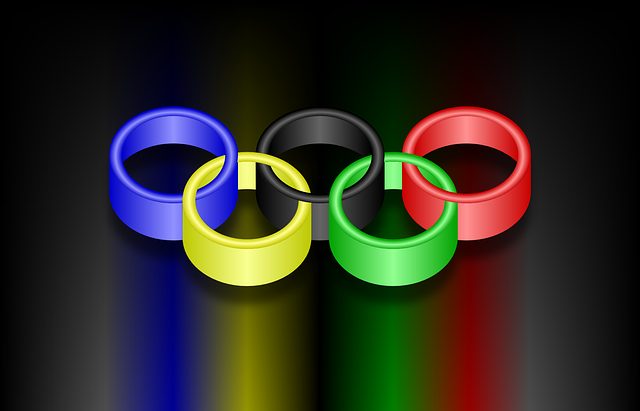¡Hola curiosos!
Seguimos por este apasionante mundo del Olimpismo moderno, ahondando en las curiosidades más destacables y haciendo eco de las verdades del deporte de nuestros días.
Continuamos por los años 20'...¡París!
- París 1924. Primera vez en la historia que se divide la competición, nacen los JJOO de Invierno. Weissmuller se convierte en el primer hombre capaz de bajar de un minuto en los 100 metros libres.
- Ámsterdam 1928. Se produce la primera participación de las mujeres en las pruebas de atletismo. Primer oro olímpico para un deportista (equipo) español: en una prueba por equipos de hípica.
- Los Ángeles 1932. Llega el podio a tres alturas, los cronómetros miden hasta las centésimas y se comenzó con la tradición de que sonase el himno nacional de los vencedores.
- Berlín 1936. Fueron concedidos en 1931 a la república de Weimar, frente a la candidatura de Barcelona. Impresionaron por su derroche técnico, de gestión y organización. Se creó, para estos JJOO, el símbolo de la antorcha y el “fuego olímpico”. Fue legendaria la participación de Jesse Owens.
- Londres 1948. Aún se olía la guerra, tras muchos años de ausencia de JJOO por la II Guerra Mundial, Londres acogió unos Juegos marcados por la austeridad, provocada por la crisis que siguió a la guerra. La Villa Olímpica eran barracones del ejército que traían trágicos recuerdos. Las salidas de 100 y 400 metros incorporaron los tacos, gran innovación en material deportivo. El húngaro Karoly Takacs, que había perdido un brazo, aprendió a disparar con su mano izquierda y se proclamó campeón con récord absoluto de pistola.
- Helsinki 1952. Stalin se negó a que la antorcha olímpica pasase por sus tierras. Las tensiones entre comunismo y capitalismo fue tal que deportistas de la Unión Soviética e Isral decidieron no compartir ni hotel con los deportistas occidentales. La hípica permitió que hombres y mujeres compitiesen juntos, y la plata fue para la deportista Lis Hartel, pese a tener paralizadas las piernas de rodillas para abajo.
- Melbourne 1956. Éstos se consideran los JJOO boicoteados, por una serie de acontecimientos de índole político que surgieron esos años. España, Suiza y Holanda se negaron a acudir a los JJOO ya que no se vetó a la URSS (que había ocupado a la fuerza Budapest). Por otro lado Líbano, Irak y Egipto no participaron porque Israel estuvo presente (después de la guerra del Sinai). Por último, la presencia de Taiwan hizo que China se negase a participar. Las dos Alemanias se presentaron con una misma bandera y una misma sinfonía.
Y aquí lo dejamos por hoy curiosos, seguiremos en un post más disfrutando de las curiosidades olimpiada tras olimpiada.
¡Un saludo, nos leemos!
Autor: Cantos, C.
Hello curious!
Follow this exciting world of modern Olympism, delving into the most remarkable curiosities and echoing truths sport today.
Continue along the 20 '... Paris!
- Paris 1924. First time in history that the competition is divided, born Winter Olympics. Weissmuller became the first man to lose a minute in the 100 freestyle.
- 1928. Amsterdam's first participation of women in the athletics occurs. First Olympic gold for an athlete (team) Spanish: in a team event riding.
- Los Angeles 1932. Comes the podium at three heights, timers measured to hundredths and started the tradition that sounded the national anthem of the victors.
- Berlin 1936. They were granted in 1931 to the Weimar Republic, against the candidacy of Barcelona. Impressed by its technical waste, management and organization. For these Olympics, created the symbol of the torch and the "Olympic flame". Participation was legendary Jesse Owens.
- London 1948. Still smelled war, after many years of absence of OG by World War II, London hosted the Games marked by austerity, caused by the crisis that followed the war. The Olympic Village army barracks were bringing tragic memories. The outputs of 100 and 400 meters incorporated tacos, great innovation in sports equipment. The Hungarian Karoly Takacs, who had lost an arm, learned to shoot with his left hand and became champion with absolute record of a gun.
- Helsinki 1952. Stalin refused to let the Olympic torch pass through their lands. Tensions between communism and capitalism was such that athletes of the Soviet Union and Isral decided not share or hotel with Western athletes. The equestrian allowed men and women competed together, and silver went to the athlete Lis Hartel, despite being paralyzed legs from the knees down.
- Melbourne 1956. These are considered the Olympics boycotted by a number of events of a political nature that emerged those years. Spain, Switzerland and the Netherlands refused to go to the Olympics because it is not vetoed the USSR (which had occupied the Budapest force). On the other hand Lebanon, Iraq and Egypt did not participate because Israel was present (after the Sinai War). Finally, the presence of Taiwan made China refused to participate. The two Germanies were presented with one flag and one symphony.
- 1960 Rome. Olympics were the first televised. The first Paralympic Games were also held. Abebe Bikila, running barefoot, was the winner of the marathon.

And here we leave for today curious, continue on a post are just curiosities Olympiad after Olympiad.
Best regards, read it!
Author: Cantos, C.
Fuente: Elaboración propia, diario información, diario el país


No hay comentarios:
Publicar un comentario